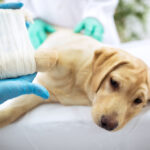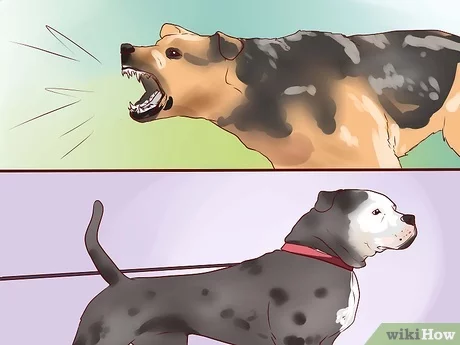Can I Get Giardia From My Dog Licking Me
Giardia is a microscopic parasite that can cause diarrhea, abdominal cramps, and other symptoms in infected humans and animals. While giardiasis is most commonly spread through contaminated water or food, some people wonder if they can get giardia from their dogs licking them. This article explores the risks and realities of giardia transmission between dogs and humans, based on scientific evidence and expert opinions.
What is Giardia?
Giardia is a single-celled organism that lives in the intestines of infected hosts, such as dogs, cats, cows, beavers, and humans. Giardia has two forms: a dormant cyst that survives outside the host for weeks to months, and an active trophozoite that attaches to the intestinal lining and reproduces by dividing into two. Giardia causes problems by interfering with the absorption of nutrients and water in the small intestine, leading to diarrhea, dehydration, weight loss, and malnutrition.
How is Giardia Transmitted?
Giardia spreads through fecal-oral transmission, which means that the parasite travels from one host’s poop to another host’s mouth. The most common sources of giardiasis are contaminated drinking water or recreational water (such as lakes or pools), raw or undercooked meat or seafood (such as beef or salmon), unwashed fruits or vegetables (such as lettuce or berries), and poor hygiene practices (such as not washing hands after using the bathroom or changing diapers). Once ingested, giardia cysts can hatch into trophozoites in the stomach and travel to the small intestine, where they start multiplying.
Can Dogs Give Humans Giardia?
It is possible for dogs to carry giardia and shed cysts in their feces without showing any symptoms. However, not all dogs are infected with giardia, and not all cases of human giardiasis are caused by contact with dogs. According to the Centers for Disease Control and Prevention (CDC), human giardiasis is usually not spread from person to person, except in rare cases of sexual or fecal-oral transmission among close contacts. Therefore, the risk of getting giardia from a dog licking you is low, but not zero.
What Factors Affect Giardia Transmission?
The likelihood of giardia transmission between dogs and humans depends on several factors, such as:
– The health status of the dog and the human: People with weakened immune systems, such as children, elderly, pregnant women, or people with HIV/AIDS or cancer, are more vulnerable to giardiasis and may experience more severe symptoms. Dogs with underlying conditions that affect their immune system or digestive tract may also be more susceptible to giardia infection and shedding.
– The hygiene habits of the dog owner and the dog: Regular hand washing with soap and water can reduce the risk of giardia contamination from petting or handling a dog that may have come into contact with infected feces. Keeping your dog’s living area clean and disposing of poop properly can also prevent environmental contamination. Avoiding direct contact with your dog’s mouth, nose, or anus can further decrease the chances of exposure.
– The source of giardia infection: If you know that your dog has been diagnosed with giardia or has been exposed to contaminated water or food, you should take extra precautions to avoid getting infected yourself. Similarly, if you have recently traveled to an area where giardiasis is endemic or have consumed risky foods or drinks, you should be aware of the symptoms and seek medical attention if necessary.
How Can You Prevent Giardia Infection in Humans and Dogs?
Preventing giardiasis in humans and dogs requires a combination of personal hygiene practices, environmental management strategies, and veterinary care. Some tips for reducing the risk of giardia transmission are:
– Wash your hands with soap and water before preparing or eating food, after using the bathroom, after handling pets or animal waste, and after outdoor activities.
– Use clean and safe sources of drinking water, or boil or filter water if unsure about its quality. Avoid swimming or playing in untreated or stagnant water, especially if you have an open wound or a weakened immune system.
– Cook meat and seafood thoroughly, wash fruits and vegetables thoroughly, and avoid consuming raw or unpasteurized products.
– Pick up dog poop promptly and dispose of it in a sealed bag in a designated bin. Do not let your dog drink from puddles or streams that may be contaminated with feces. Clean your dog’s bowls, toys, bedding, and grooming tools regularly with hot water and soap.
– Schedule regular veterinary check-ups for your dog and follow the recommended vaccination and deworming protocols. Ask your vet about giardia testing and treatment options if you suspect your dog has been exposed to the parasite.
Conclusion
Giardia is a common cause of diarrhea in dogs and humans, but the risk of getting giardiasis from a dog licking you is relatively low compared to other modes of transmission. However, practicing good hygiene habits and environmental management can help prevent giardia infection in both species. If you experience symptoms of giardiasis, such as diarrhea, abdominal pain, nausea, or fatigue, seek medical attention promptly and inform your healthcare provider about any possible exposures to giardia. Remember to enjoy your furry friend’s company while staying healthy!



